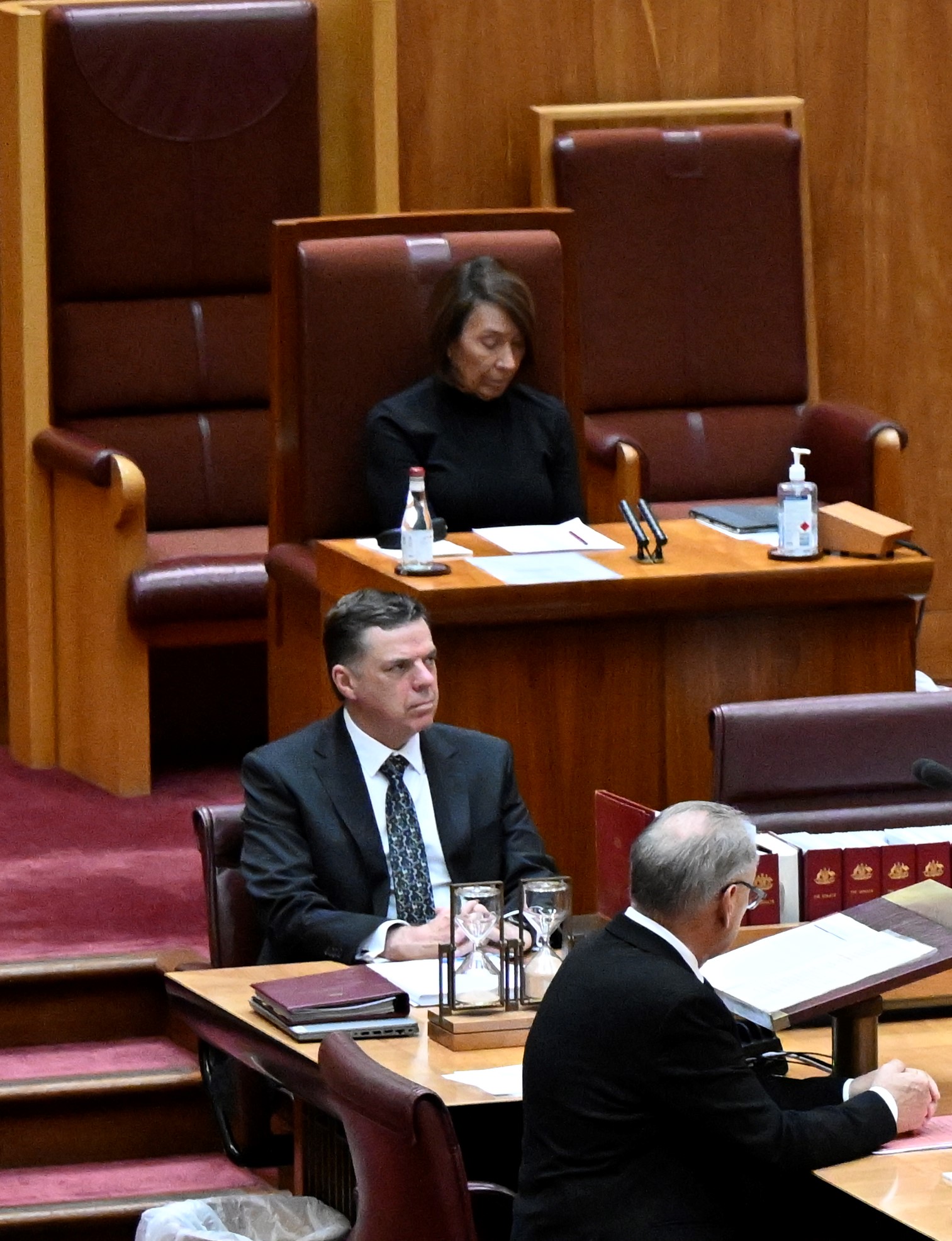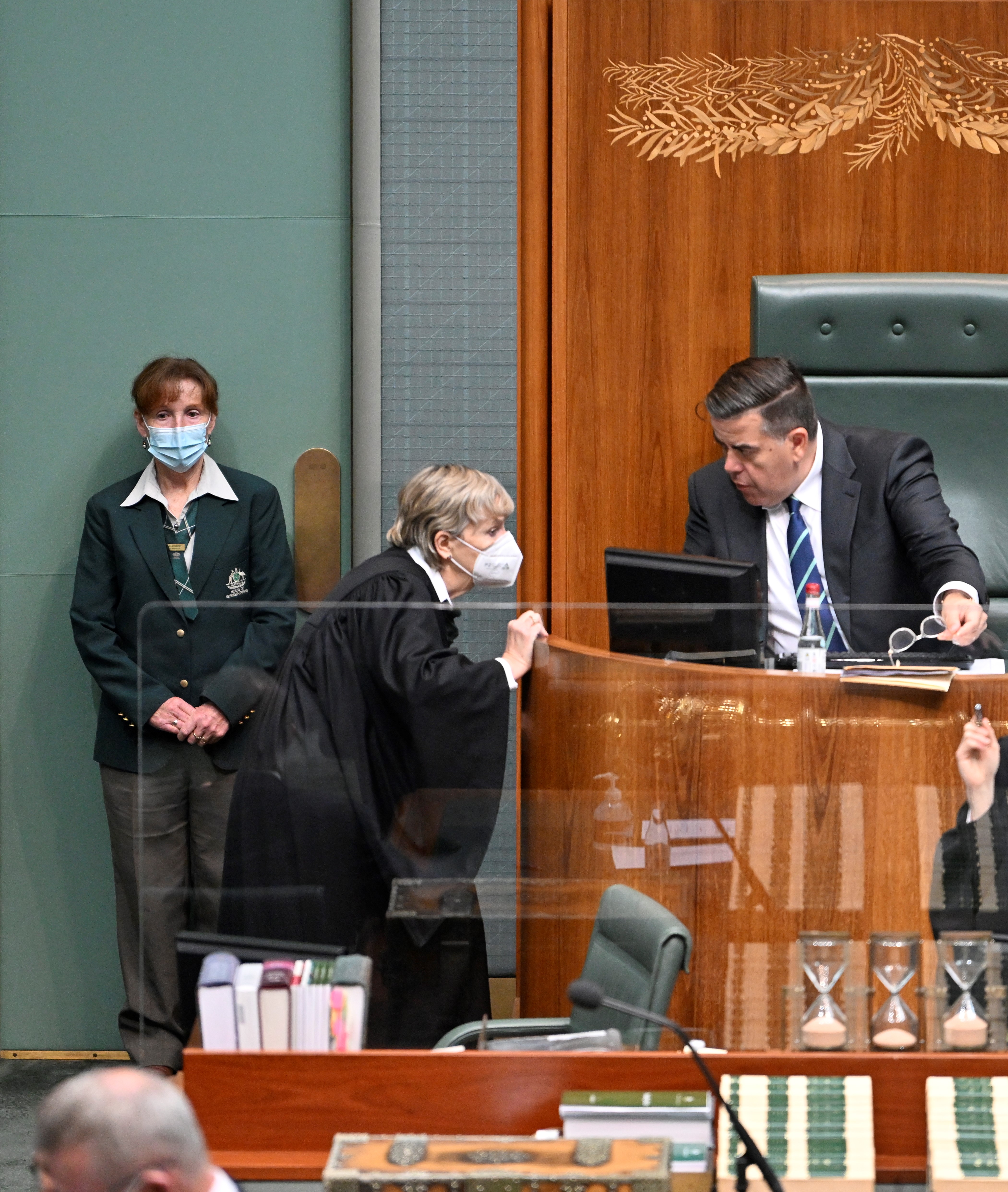Clerks
Understand the role of the Clerks in the Senate and House of Representatives with this fact sheet. Learn about their work and the history of their positions.
What will I learn?
- Clerks are the top-level parliamentary officer.
- Clerks assist to run meetings in the Senate and the House of Representatives.
- The Clerks are the only non-elected people who regularly speak in the Senate or the House.
The Clerk of the Senate

Paul Furness/DPS Auspic
Description
The Clerk of the Senate sitting at their desk in the Senate. The Clerk sit near the President of the Senate, who is sitting in an elevated chair behind them. At the Clerks desk there are books which contain the standing orders – rules – of the Senate. In front of the Clerk there are 2 hourglasses which they use to indicate how much time remains for a senator to reach the chamber before a vote begins.
Copyright information
Permission should be sought from DPS AUSPIC for third-party or commercial uses of this image. To contact DPS AUSPIC email: auspic@aph.gov.au or phone: 02 6277 3342.
The Clerk of the House of Representatives

DPS Auspic
Description
The Clerk, wearing a traditional black gown, leans in to speak to the Speaker of the House of Representatives in his chair. The Clerk usually sits at the desk in front of the Speaker where they keep sand timers and books including the standing orders – rules – of the House of Representatives.
Copyright information
Permission should be sought from DPS AUSPIC for third-party or commercial uses of this image. To contact DPS AUSPIC email: auspic@aph.gov.au or phone: 02 6277 3342.
Who are the Clerks?
The Clerks are top-level parliamentary officers who support the work of the Parliament. The Senate and the House of Representatives each have a Clerk. The Clerks are the main advisers on matters relating to the business and procedures of the Parliament. They are the only non-elected people who regularly speak in the Senate or House.
Role
The Clerks help the Presiding Officers – the President of the Senate or the Speaker of the House of Representatives – to run meetings. The Clerks have several responsibilities in the Senate or House. They:
- help to organise the program for each sitting day
- give advice on procedure and standing orders – the rules of the meeting
- announce the topic or piece of work – item of business – that is to be discussed
- table documents and certify the passage of bills through the Parliament by signing them
- record the actions and decisions of Parliament in a daily publication – Journals of the Senate (Senate), and Votes and Proceedings (House)
- ring the bells when asked to by the Presiding Officer
- help with ceremonial occasions, like the opening of Parliament and the swearing-in of new members of parliament.
The Senate and House also have a Deputy Clerk and several Clerk Assistants who support the Clerks in their duties.
Department role
The Clerks also have an administrative role as the heads of the Department of the Senate and Department of the House of Representatives. Clerks:
- manage the staff and departments which provide services to members of parliament
- organise the daily operations of Parliament
- advise members of parliament on parliamentary rules, practice and procedure, the requirements of the Australian Constitution and laws that affect Parliament.
History
The role of the Clerk dates back to English parliament in the 1300’s. Clerks could both read and write at a time when most people could not. The Clerk read out the complete text of proposed laws to inform members of its contents and kept a record of decisions. In Australian Parliament, in keeping with tradition the Clerk reads out the title of each bill 3 times before it is passed. This indicates agreement to the bill at different stages.
In the past, Clerks in the Australian Parliament wore a wig and gown. In the mid-1990’s Clerks stopped wearing the wig, although the Clerk in the House still wears a traditional gown.